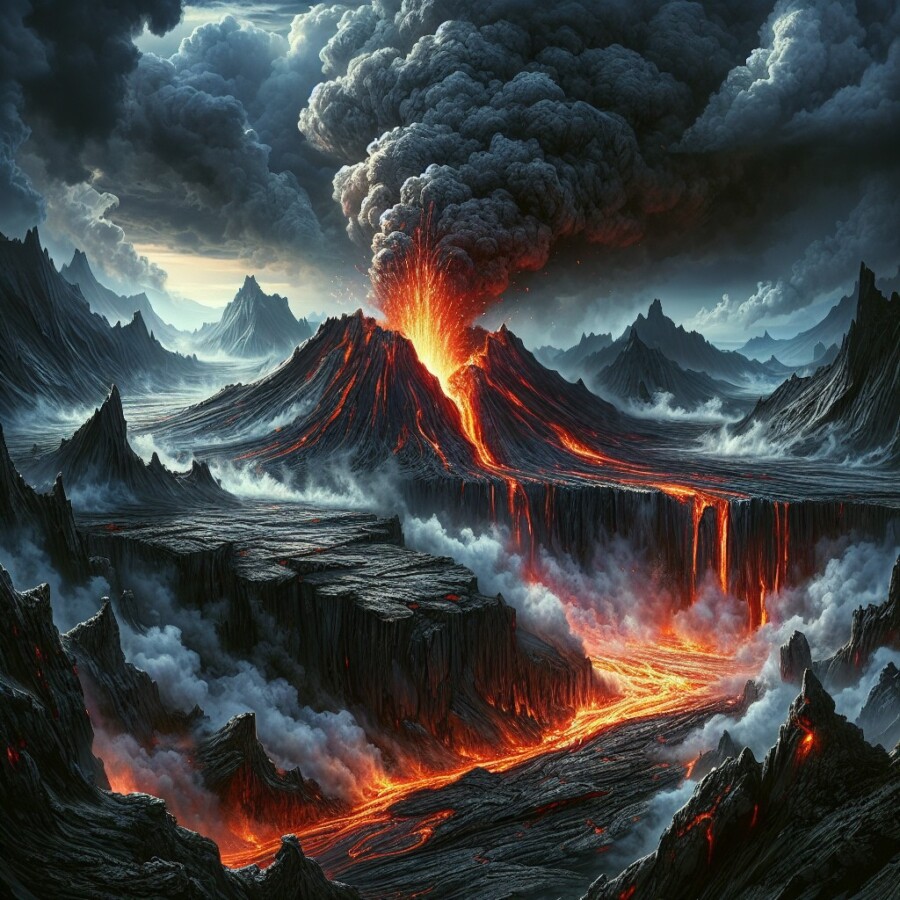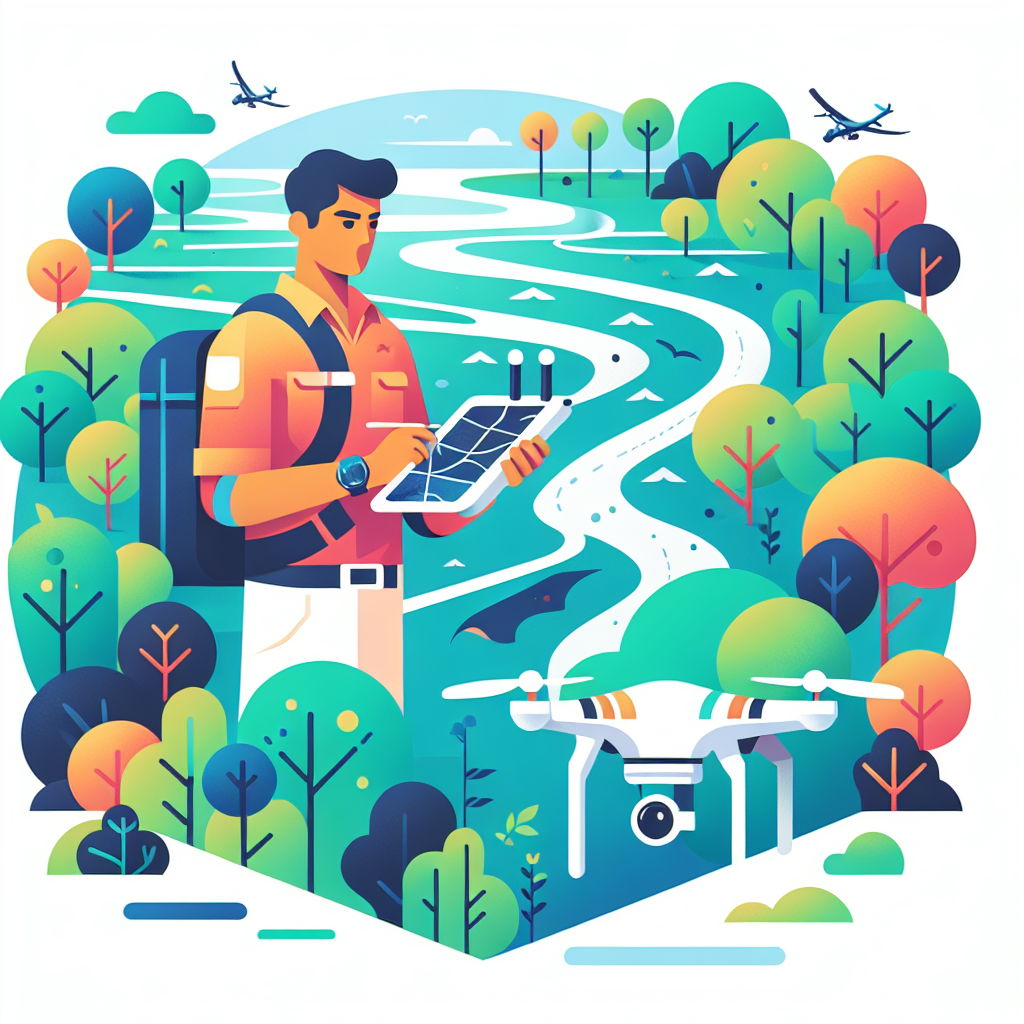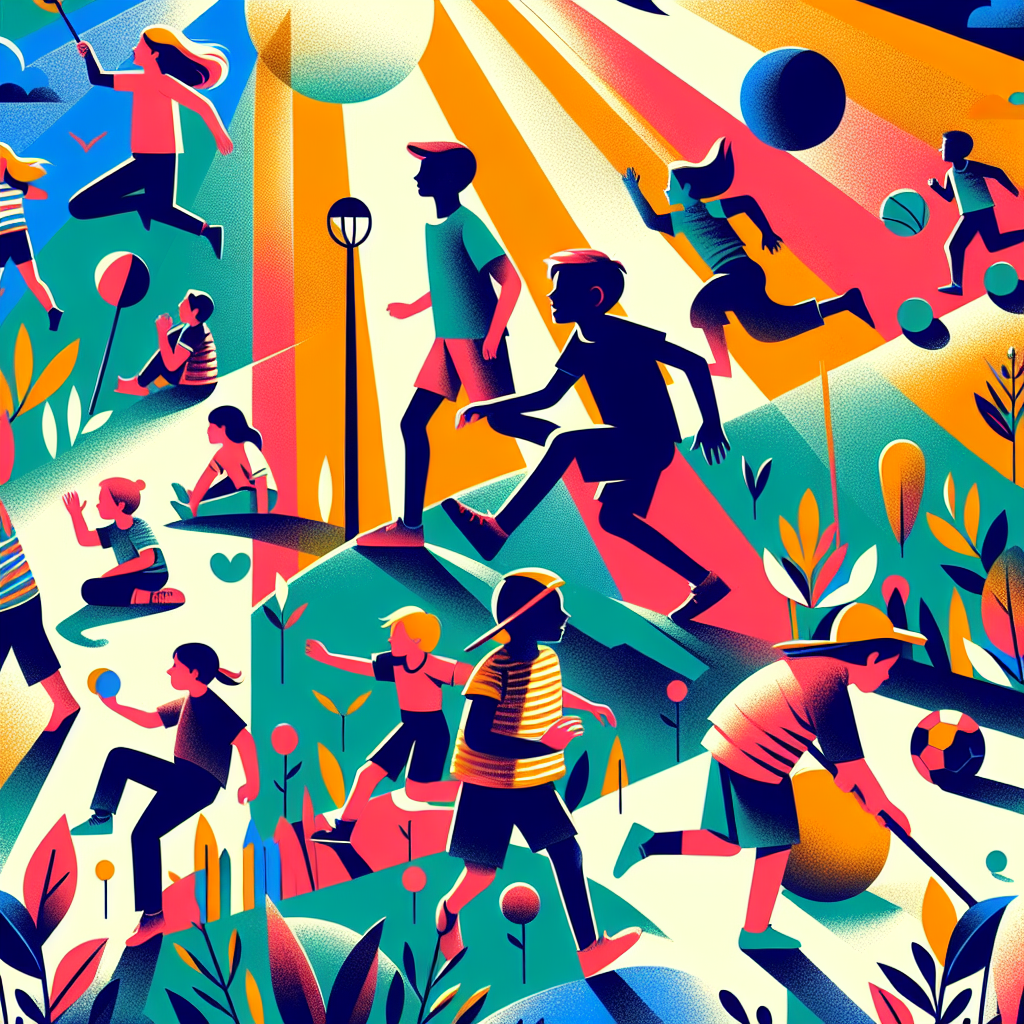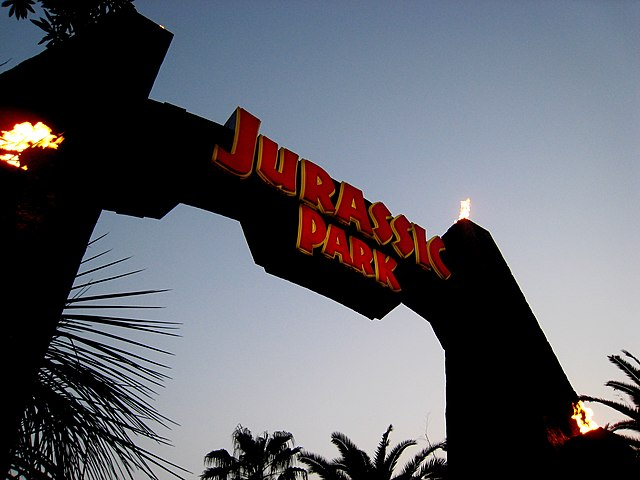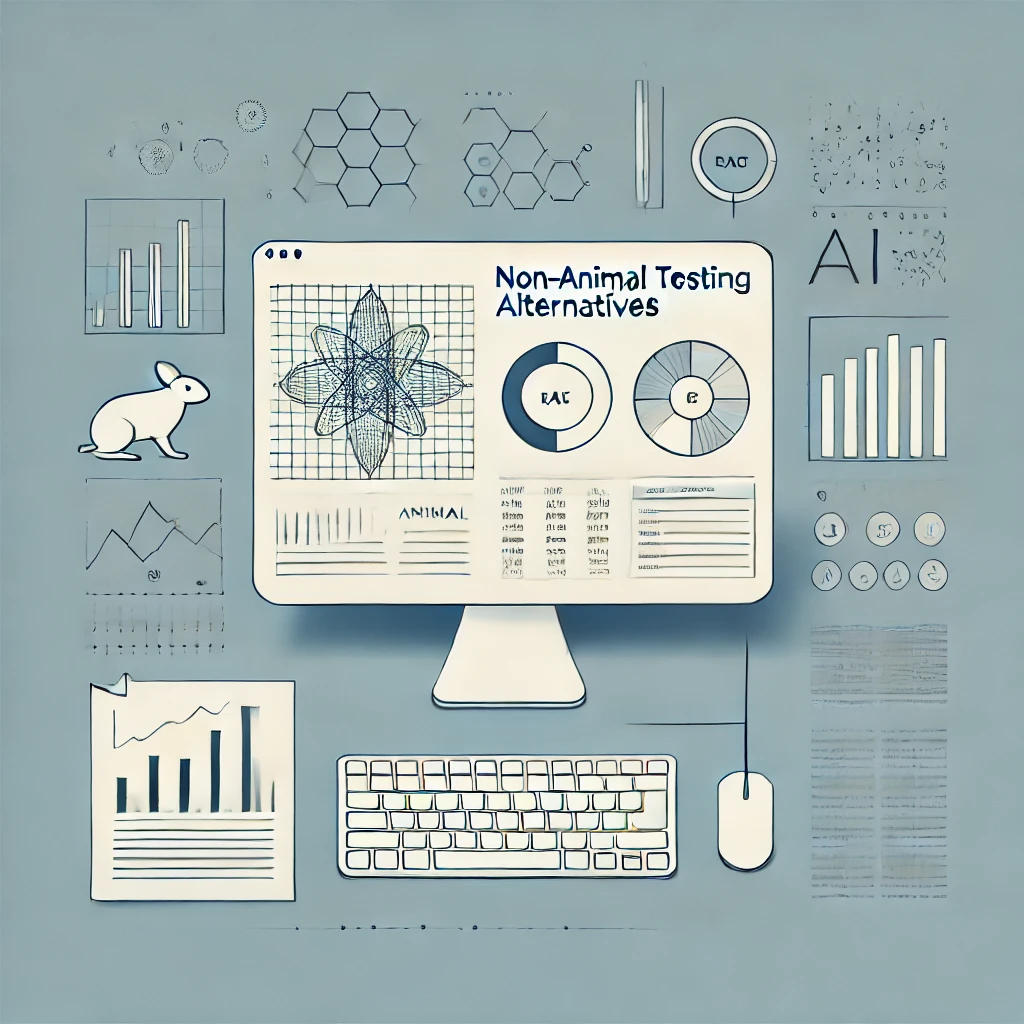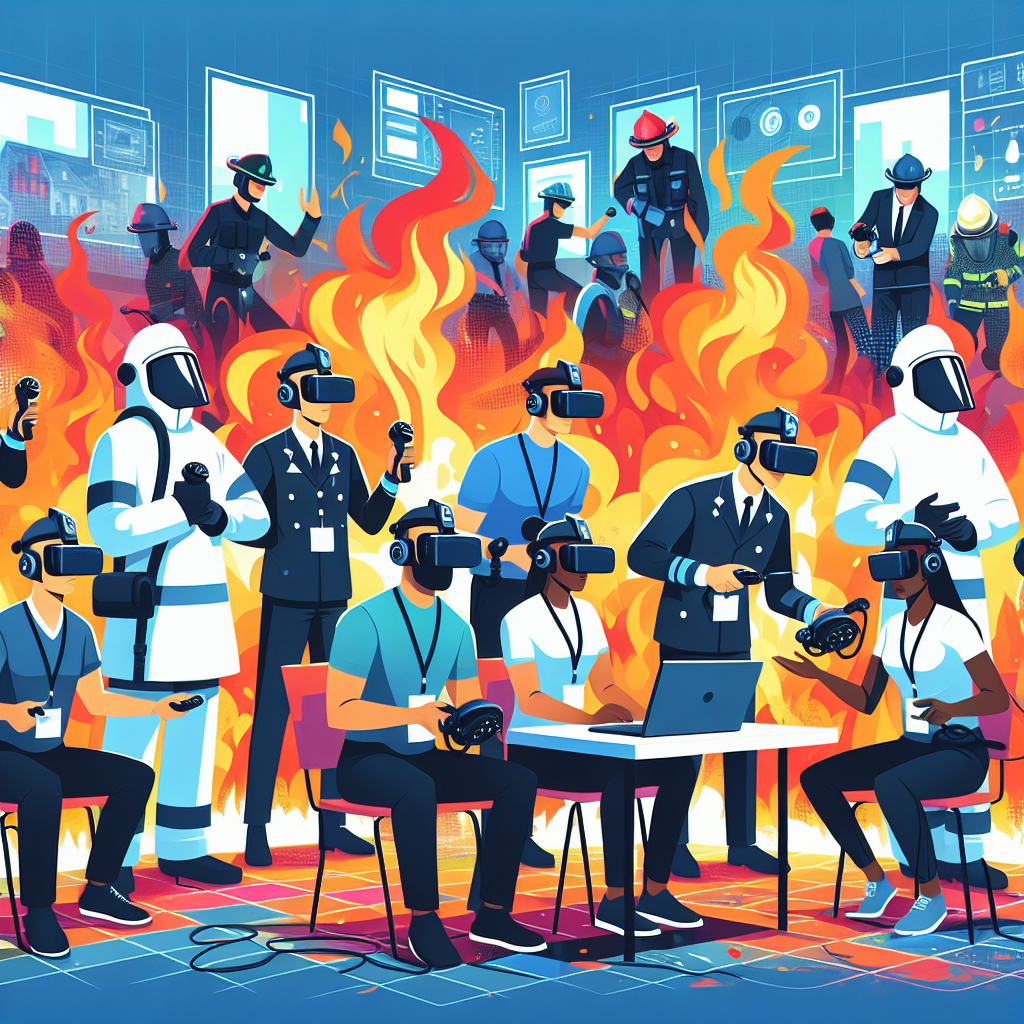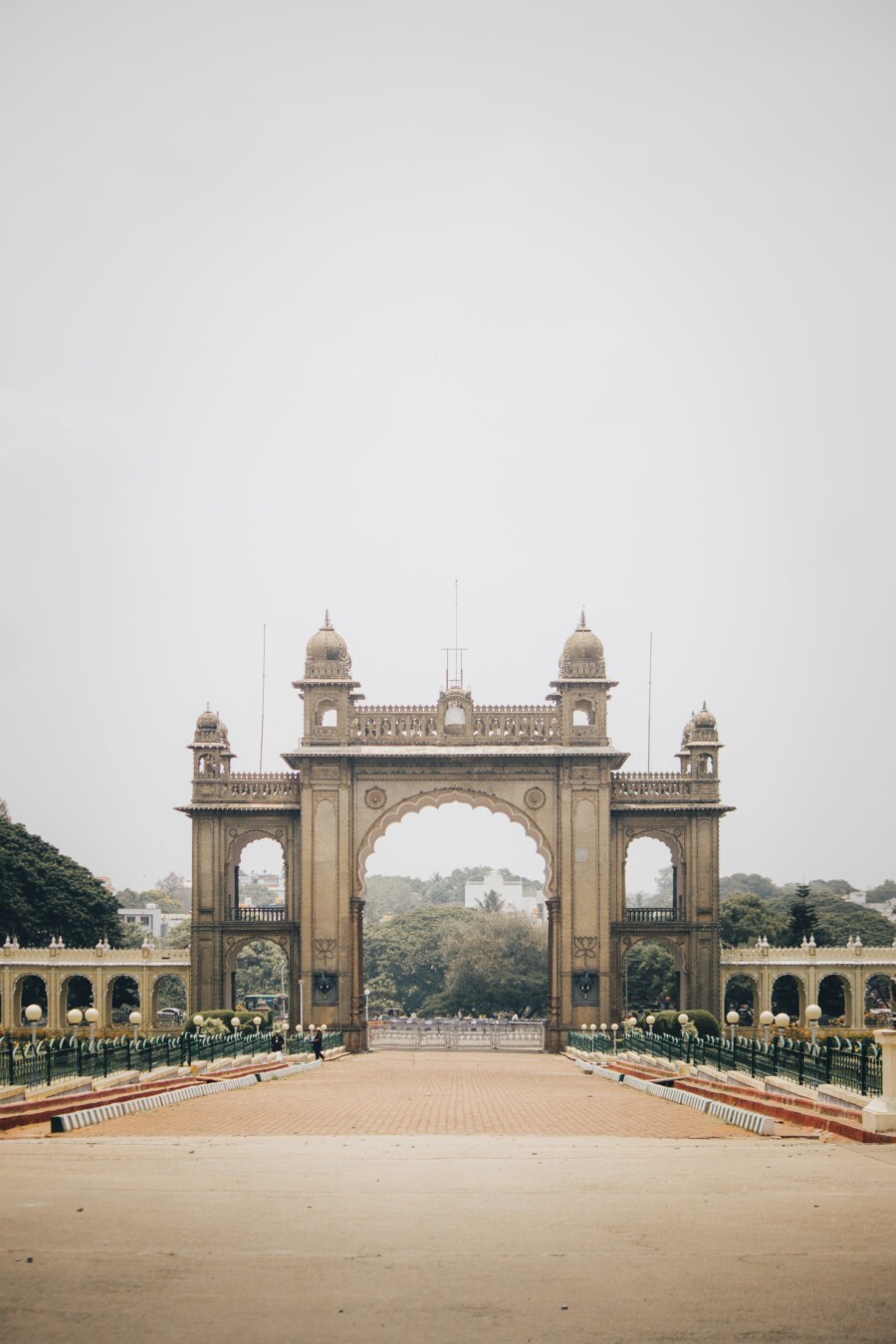Iceland is going through a time where more volcanoes could start erupting. This might happen for many years or even hundreds of years. The country is in a special place on Earth where two big pieces of the ground are moving apart. This makes it easier for hot liquid rock from deep inside the Earth to come up. Recently, there have been three eruptions, and more than 30 volcanoes in Iceland might erupt soon. A long time ago, there were no eruptions in one area, but now they have started again.
Scientists are trying to guess when and where the next volcano will erupt, but it’s hard. They can see the ground getting higher as the hot liquid rock comes up. People in Iceland are trying to protect their towns and important places from the lava. But if the ground cracks open and lava comes out inside their protective walls, they can’t do much. The place where most people live and important buildings are could be in danger because of these eruptions.
Researchers are looking at different areas where volcanoes are to understand better what’s happening. The eruptions started in one area but then stopped and started again in a different place. They are watching how much hot liquid rock is moving to guess if eruptions will happen in new places. But even with all their work, there’s still a lot they don’t know as Iceland goes into this time of more volcanic eruptions.
Original news source: Is Iceland entering a new volcanic era? (BBC)
🎧 Listen:
Slow
Normal
Fast
📖 Vocabulary:
| 1 | Iceland | A country known for its beautiful nature and cold weather |
| 2 | erupting | When a volcano explodes and sends out smoke, ash, and sometimes hot liquid rock |
| 3 | volcanoes | Big mountains that can explode and send out hot liquid rock, ash, and smoke |
| 4 | scientists | People who study things in nature to learn how they work |
| 5 | lava | Very hot, melted rock that comes out of a volcano when it explodes |
| 6 | protective | Meant to keep someone or something safe from harm |
| 7 | researchers | People who do deep studies to find out new things |
| 8 | eruptions | The act of a volcano exploding and sending out smoke, ash, and hot liquid rock |
| 9 | understand | To know or grasp the meaning of something |
| 10 | danger | When something or someone could be hurt or harmed |
| 11 | guess | To try and say what will happen without being sure |
| 12 | moving | When something is going from one place to another |
Group or Classroom Activities
Warm-up Activities:
– Charades
Instructions: Divide the class into groups. Give each group a volcano-related word or phrase from the article (e.g. eruption, lava, magma). One student from each group will act out the word or phrase without speaking, while the rest of the group tries to guess what it is. The group that guesses correctly gets a point. Repeat with different words or phrases.
– News Summary
Instructions: Have the students read the article individually or in pairs. Then, ask them to write a summary of the article in their own words, using key information and main ideas. After they finish writing, have them share their summaries with a partner or in small groups.
– Opinion Poll
Instructions: Create a list of statements related to volcanoes and the article (e.g. “Volcanoes are fascinating natural phenomena”). Have the students walk around the classroom and ask their classmates for their opinions on each statement, marking their answers as “Agree,” “Disagree,” or “Not Sure.” After collecting responses, students can share their findings with the class and discuss different opinions.
– Vocabulary Pictionary
Instructions: Write a list of vocabulary words from the article on the board (e.g. erupt, crack, lava). Divide the class into pairs or small groups. One student from each group will choose a word and draw a picture to represent it, while the rest of the group tries to guess the word. The group that guesses correctly gets a point. Repeat with different words.
– Future Predictions
Instructions: In pairs or small groups, have the students discuss and make predictions about the future of volcanoes in Iceland based on the information in the article. They can discuss questions such as “Will there be more eruptions in the coming years?” or “How might these eruptions affect the people and places in Iceland?” After the discussion, groups can share their predictions with the class.
🤔 Comprehension Questions:
1. What is happening in Iceland right now?
2. Why is it easier for hot liquid rock to come up in Iceland?
3. How many eruptions have there been recently in Iceland?
4. Why is it hard for scientists to guess when and where the next volcano will erupt?
5. What are people in Iceland trying to do to protect their towns and important places?
6. Where are researchers looking to understand better what’s happening with the volcanoes?
7. Is there still a lot that scientists don’t know about the volcanic eruptions in Iceland?
Go to answers ⇩
🎧✍️ Listen and Fill in the Gaps:
Iceland is going through a time where more volcanoes could (1)______ erupting. This might happen for many (2)______ or even hundreds of years. The country is in a special place on Earth where two big pieces of the ground are moving apart. This makes it easier for hot liquid (3)______ from deep inside the Earth to come up. Recently, there have been three eruptions, and more than 30 (4)______ in Iceland might (5)______ soon. A long time ago, there were no eruptions in one area, but now they have (6)______ again.
Scientists are trying to guess when and where the next volcano will erupt, but it’s hard. They can see the ground getting higher as the hot liquid rock comes up. People in Iceland are trying to (7)______ their towns and important (8)______s from the lava. But if the ground (9)______ open and lava comes out inside their protective walls, they can’t do much. The place where most people live and important buildings are could be in danger because of these eruptions.
Researchers are looking at different areas where volcanoes are to understand better what’s happening. The eruptions started in one area but then stopped and started again in a (10)______ place. They are watching how much hot liquid rock is moving to (11)______ if eruptions will happen in new places. But even with all their (12)______, there’s still a lot they don’t know as Iceland goes into this time of more volcanic eruptions.
Go to answers ⇩
💬 Discussion Questions:
Students can ask a partner these questions, or discuss them as a group.
1. What is a volcano?
2. How would you feel if you lived in Iceland and there were many volcanoes erupting?
3. Do you think it’s scary that the ground in Iceland is cracking open and lava is coming out? Why or why not?
4. How do you think scientists can predict when and where the next volcano will erupt?
5. Do you think it’s important for people in Iceland to protect their towns and important places from the lava? Why or why not?
6. What do you think researchers are learning by looking at different areas where volcanoes are?
7. How do you think the people in Iceland feel knowing that more volcanic eruptions might happen soon?
8. Do you like learning about volcanoes? Why or why not?
9. How would you feel if you lived in a place where there were many volcanoes?
10. What do you think is the scariest part about volcanic eruptions?
11. Do you think it’s possible for scientists to know everything about volcanic eruptions? Why or why not?
12. Why do you think Iceland is going through a time of more volcanic eruptions?
Individual Activities
📖💭 Vocabulary Meanings:
Match each word to its meaning.
Words:
1. Iceland
2. erupting
3. volcanoes
4. scientists
5. lava
6. protective
7. researchers
8. eruptions
9. understand
10. danger
11. guess
12. moving
Meanings:
(A) Meant to keep someone or something safe from harm
(B) Big mountains that can explode and send out hot liquid rock, ash, and smoke
(C) When something or someone could be hurt or harmed
(D) When a volcano explodes and sends out smoke, ash, and sometimes hot liquid rock
(E) The act of a volcano exploding and sending out smoke, ash, and hot liquid rock
(F) Very hot, melted rock that comes out of a volcano when it explodes
(G) When something is going from one place to another
(H) People who study things in nature to learn how they work
(I) People who do deep studies to find out new things
(J) To know or grasp the meaning of something
(K) A country known for its beautiful nature and cold weather
(L) To try and say what will happen without being sure
Go to answers ⇩
🔡 Multiple Choice Questions:
1. Why might more volcanoes start erupting in Iceland?
(a) The ground is moving together, making it harder for hot liquid rock to come up.
(b) The ground is moving apart, making it easier for hot liquid rock to come up.
(c) The ground is staying still, so no volcanoes will erupt.
(d) The ground is sinking, so no volcanoes will erupt.
2. How many eruptions have there been recently in Iceland?
(a) Ten
(b) Twenty
(c) Three
(d) Thirty
3. How many volcanoes in Iceland might erupt soon?
(a) Less than 10
(b) Exactly 20
(c) More than 30
(d) Exactly 30
4. What are scientists trying to do?
(a) Stop the eruptions from happening.
(b) Guess when and where the next volcano will erupt.
(c) Build protective walls around the volcanoes.
(d) Move the hot liquid rock back inside the Earth.
5. What happens when the ground cracks open and lava comes out inside the protective walls?
(a) People can’t do much to stop it.
(b) People can easily stop it.
(c) The lava goes back inside the Earth.
(d) The lava turns into ice.
6. What are researchers looking at to understand the volcanic eruptions better?
(a) Different areas where earthquakes are.
(b) Different areas where tornadoes are.
(c) Different areas where hurricanes are.
(d) Different areas where volcanoes are.
7. Where did the eruptions start?
(a) In one area
(b) In every area
(c) In no area
(d) In a different area every time
8. What are scientists watching to guess if eruptions will happen in new places?
(a) How much water is moving.
(b) How much wind is moving.
(c) How much ice is moving.
(d) How much hot liquid rock is moving.
Go to answers ⇩
🕵️ True or False Questions:
1. The ground cracking open and lava coming out could put people and important buildings in danger.
2. The ground in Iceland is not moving apart, making it easier for hot liquid rock to come up.
3. Iceland is a country where volcanoes can erupt.
4. People in Iceland are not trying to protect their towns and important places from lava.
5. Researchers are studying different areas with volcanoes to understand what’s happening.
6. Less than 30 volcanoes in Iceland might erupt soon.
7. There have not been three recent eruptions in Iceland.
8. Scientists are trying to predict when and where the next eruption will happen, but it’s difficult.
Go to answers ⇩
📝 Write a Summary:
Write a summary of this news article in two sentences.
Check your writing now with the best free AI for English writing!
Writing Questions:
Answer the following questions. Write as much as you can for each answer.
Check your answers with our free English writing assistant!
1. What is happening in Iceland that might cause more volcanoes to erupt?
2. How many eruptions have there been recently in Iceland?
3. Why is it difficult for scientists to predict when and where the next volcano will erupt?
4. What are people in Iceland doing to protect their towns and important places from the lava?
5. What are researchers doing to try to understand why the eruptions are happening in different places?
✅ Answers
🤔✅ Comprehension Question Answers:
1. What is happening in Iceland right now?
Iceland is experiencing an increase in volcanic activity.
2. Why is it easier for hot liquid rock to come up in Iceland?
It is easier for hot liquid rock to come up in Iceland because two big pieces of the ground are moving apart, creating openings for the magma to reach the surface.
3. How many eruptions have there been recently in Iceland?
There have been three recent eruptions in Iceland.
4. Why is it hard for scientists to guess when and where the next volcano will erupt?
It is hard for scientists to predict the next volcanic eruption because there are still many things they don’t fully understand about the volcanic activity in Iceland.
5. What are people in Iceland trying to do to protect their towns and important places?
People in Iceland are trying to protect their towns and important places by building protective walls and barriers to try and prevent the lava from reaching them.
6. Where are researchers looking to understand better what’s happening with the volcanoes?
Researchers are looking at different areas where volcanoes are located in order to gain a better understanding of what is happening with the volcanic activity in Iceland.
7. Is there still a lot that scientists don’t know about the volcanic eruptions in Iceland?
Yes, there is still a lot that scientists don’t know about the volcanic eruptions in Iceland.
Go back to questions ⇧
🎧✍️✅ Listen and Fill in the Gaps Answers:
(1) start
(2) years
(3) rock
(4) volcanoes
(5) erupt
(6) started
(7) protect
(8) place
(9) cracks
(10) different
(11) guess
(12) work
Go back to questions ⇧
📖💭✅ Vocabulary Meanings Answers:
1. Iceland
Answer: (K) A country known for its beautiful nature and cold weather
2. erupting
Answer: (D) When a volcano explodes and sends out smoke, ash, and sometimes hot liquid rock
3. volcanoes
Answer: (B) Big mountains that can explode and send out hot liquid rock, ash, and smoke
4. scientists
Answer: (H) People who study things in nature to learn how they work
5. lava
Answer: (F) Very hot, melted rock that comes out of a volcano when it explodes
6. protective
Answer: (A) Meant to keep someone or something safe from harm
7. researchers
Answer: (I) People who do deep studies to find out new things
8. eruptions
Answer: (E) The act of a volcano exploding and sending out smoke, ash, and hot liquid rock
9. understand
Answer: (J) To know or grasp the meaning of something
10. danger
Answer: (C) When something or someone could be hurt or harmed
11. guess
Answer: (L) To try and say what will happen without being sure
12. moving
Answer: (G) When something is going from one place to another
Go back to questions ⇧
🔡✅ Multiple Choice Answers:
1. Why might more volcanoes start erupting in Iceland?
Answer: (b) The ground is moving apart, making it easier for hot liquid rock to come up.
2. How many eruptions have there been recently in Iceland?
Answer: (c) Three
3. How many volcanoes in Iceland might erupt soon?
Answer: (c) More than 30
4. What are scientists trying to do?
Answer: (b) Guess when and where the next volcano will erupt.
5. What happens when the ground cracks open and lava comes out inside the protective walls?
Answer: (a) People can’t do much to stop it.
6. What are researchers looking at to understand the volcanic eruptions better?
Answer: (d) Different areas where volcanoes are.
7. Where did the eruptions start?
Answer: (a) In one area
8. What are scientists watching to guess if eruptions will happen in new places?
Answer: (d) How much hot liquid rock is moving.
Go back to questions ⇧
🕵️✅ True or False Answers:
1. The ground cracking open and lava coming out could put people and important buildings in danger. (Answer: True)
2. The ground in Iceland is not moving apart, making it easier for hot liquid rock to come up. (Answer: False)
3. Iceland is a country where volcanoes can erupt. (Answer: True)
4. People in Iceland are not trying to protect their towns and important places from lava. (Answer: False)
5. Researchers are studying different areas with volcanoes to understand what’s happening. (Answer: True)
6. Less than 30 volcanoes in Iceland might erupt soon. (Answer: False)
7. There have not been three recent eruptions in Iceland. (Answer: False)
8. Scientists are trying to predict when and where the next eruption will happen, but it’s difficult. (Answer: True)
Go back to questions ⇧



